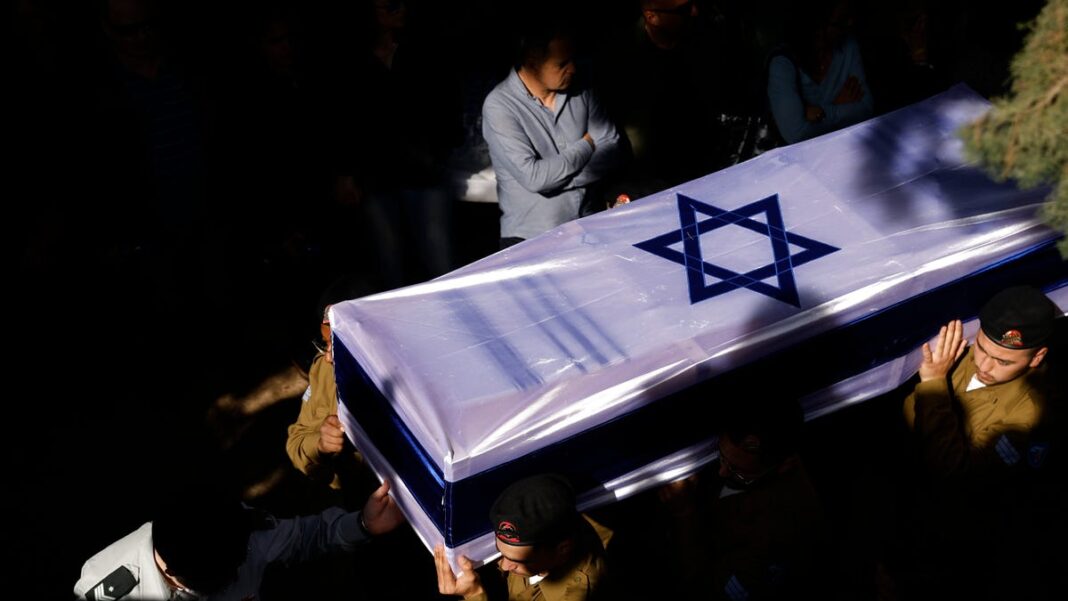Opinion: The events of Oct. 7 opened my eyes to the widespread nature of antisemitism in America.
The conflict between Hamas and Israel involves more than just territorial disputes; it highlights the depths of human cruelty and the extremes to which people will go driven by hate.
The horrific events of October 7, 2023, were meant to be a wake-up call regarding the serious dangers of antisemitism and the evil it can instigate.
That day, the world looked on in shock as Hamas killed approximately 1,200 Israelis, including numerous civilians within their homes, on neighborhood streets, and during a music festival. They also took roughly 250 individuals hostage, many of whom still remain captive, including seven Americans.
Images and videos from the October 7 assault revealed a ruthless terrorist group motivated by hate and antisemitism, committing acts of murder and violence without mercy.
Amid the grief and brutality, Israel found the resolve to retaliate against Hamas, as well as the threats posed by Hezbollah and Iran.
However, it became clear that not everyone across America and beyond had heeded the lessons from this tragic day.
A troubling number of individuals still cling to their hatred and allow antisemitism to thrive, and the issue does not only exist in Gaza and Iran; it is also present in the United States.
The horrifying attack on October 7 unveiled a dark reality
Aside from the September 11, 2001 terrorist attacks, I have not witnessed violence of this magnitude before. Like many others, I was both stunned and horrified.
Although I am not Jewish, I have many Jewish American friends and colleagues. As a Christian, I regard them as God’s chosen people. I do not need to share their faith to be appalled by the events or to empathize with the Israeli pursuit for security.
The details emerging after the initial attack, including firsthand testimonials of rape, murder, and mutilation, permanently disturbed me. I struggled to comprehend how such horrors could unfold in our modern world, akin to scenes from a horror movie or a dystopian tale.
After their rescue, several women who had been held in Gaza’s tunnels recounted horrifying tales of torture and sexual assault by Hamas members.
Hamas also kidnapped around 30 children. One child celebrated their first birthday while in captivity, highlighting an appalling reality. Babies were taken hostage, which is utterly revolting.
This conflict transcends mere territorial disputes; it embodies deep-seated religious and ethnic animosities rooted in history.
It fundamentally reflects the appalling depths of human depravity and the horrific actions individuals will commit under the banner of hatred.
Antisemitism in the U.S. is more widespread than we realized
One year after that fateful attack, it remains unfathomable that such a crime unfolded while we were watching.
To my dismay, antisemitism did not simply emerge in the U.S. post-attack; it had been present long before. The events of October 7 exposed it and sparked antisemites to become more outspoken than ever.
In the U.S., calls for a ceasefire in support of Palestine escalated into acts of violence. Demonstrators at universities aggressively targeted Jewish students, vandalized property, and engaged in antisemitic rants.
In April, Jewish students were advised to leave Columbia University due to concerns over bullying and hostility. School officials decided to conduct classes online for safety reasons. Similar incidents occurred at Yale as well.
The protests often lacked a clear distinction between support for Palestine and hostility towards Jewish individuals or even America itself.
Columbia’s President Minouche Shafik aimed to address the protesters and appease influential individuals with a strong speech but ultimately fell short. Facing backlash over rising antisemitism on campus, she resigned in August.
She was the third Ivy League president to resign amidst these conditions.
We cannot ignore the evils of terrorism
Since October 7, I have watched two recent films centered on the Holocaust, “The Zone of Interest” and “Irena’s Vow.” The first chronicles the life of a commandant at Auschwitz and his family living neighboring the notorious extermination camp, while the second is the poignant tale of a Polish woman who conceals several Jews while working for a Nazi officer. One film provoked outrage, while the other inspired hope.
Every time I learn about the Holocaust—lessons regarding morality and the battle between good and evil—I reflect on how events similar to October 7 could occur, igniting antisemitism in the U.S. America should be a refuge for those who cherish freedom, not a breeding ground for individuals emboldened to promote hatred.
On such a dreadful day, we must confront the acts of terrorism that occurred in Israel. We cannot turn a blind eye. Hatred and antisemitism have no place in our country. It is our responsibility to denounce these ideologies and stand by our Jewish friends and neighbors.
The only way to ensure we do not forget is to remind ourselves of the crucial lessons we were meant to learn from the events of October 7.

